Text
I follow this lady on instagram who rescues cats, and i have been thinking about this video for literal months. behold the transformation of this wretched little beast
(x)
105K notes
·
View notes
Text

please bring her home its been 8(4) years
761 notes
·
View notes
Text

blacked out and drew this
760 notes
·
View notes
Text
I heard the Canadian Prime Minister resigned.
I don't know if it's Trudeau.
10K notes
·
View notes
Text

please bring her home its been 8(4) years
761 notes
·
View notes
Text



"don't you worry folks, we took out all her teeth"
158 notes
·
View notes
Text
jo march blossomed into a world where the end all for women is romantic love. a world where romance is prized and valued over friendships, sometimes even familial bonds, leaving those who do not dwell on such subjects to feel isolated. loneliness for jo is not the lack of a romantic partner. it is the cold tones of an empty attic that is haunted by the memory of one filled with the golden light of laughter from best friends and sisters. Not much has changed from past to now with the idea that love is all a woman is fit for.
it's seen as taboo for a strong coded female character to admit to wanting to be loved. years of cultural messaging made many women associate independence or female autonomy with being stoic, being emotionless, the weapon-wielding, frequently assumed heterosexual heroine should be alone or else she is risking exhibiting subordination or dependence. as if her coexistence with a man automatically diminishes her to a secondary character. the emotional burden of romance, in most mainstream media, is often carried by the female character. even in the arc of the male hero, his love interest is written solely to fulfill a function as a stepping stone to self-actualization or a precursor is his "man pain."
jo march is terrified of change. she finds no comfort in the future. jo would prefer to stay young and play in the attic till the children’s last breaths because what was can feel better than what is. however, change is forever linked to the wheel of time. suddenly, all this change came in rapidly in her life, as it does for all people when nearing the endings of childhood. everything is happening so quickly, and it can not be undone.
jo has a desperate desire- need to be alone, however not to be lonely. she is a woman fueled by passion, a passion that has consumed her entire being into a state of delusion. delusion in the sense that she lives in hopes that her and loved ones will stay youthful to play with her. jo's passion is bound by the inevitable, time. the little world that she had created with her sisters had shattered from the "curse" of aging. therefore, she actively tries to keep that same spark in her writing. her fantasy is better than the burden of reality. jo march is grieving the loss of innocence and childhood. as everyone else is going along with their individual lives, jo has either consciously or subconsciously chosen to never emotionally grow up.
(all based of the 2019 version)
#jo march#little women#little woman 2019#little woman movie#amy march#amy x laurie#laurie laurence#beth march#strong women#women
115 notes
·
View notes
Text
This is something I have been wondering about for a while, how in the 1994 film Laurie saying he knew he belonged in the March family, and the implication he married Amy only for this reason. I understand people for not liking what this implies, but I have been wondering, did Laurie really mean it and why would he say it? All these observations I will be making are wholly based on the 1994 film.
In order to understand why he could possibly say such a thing, we need to acknowledge that Laurie was a very lonely kid. He has no family other than a grandfather who is a bit emotionally stinted, is new in town and he is seen hiding at a party, showing he is a bit shy. The first people who really welcome into town are the Marches, they become a second family to him, the parents he lost and sisters he never had, so it’s not surprising that he would never want to be separated from them, want to keep them as close as he could. It has been said before, but one of the reasons why Laurie believes himself to be so in love with Jo is because he doesn’t want to lose the family he had gained over the years, so there is some truth in to what he says.
Do I think that his belief he belongs with the March family his only reason to be with Amy? No, because if this was his goal, why hadn’t he tried with the other sisters? Before Meg got to know John, he could have tried to win her, but it would appear that he didn’t think about marriage until they got married, so Meg is out. But he had plenty of opportunities to get with Beth, especially when Jo left for New York. While we don’t know exactly when Laurie leaves for Europe, we know Jo leaves before him, and there is ample time for Laurie to try to make moves on Beth without Jo stopping him. If this truly was his goal, why was he so stuck on Jo, certain he loved only her, and why would he admit this “plan” to Amy, which would have only turned her off to him?
My theory is that Laurie was in defense mood, that he is clearly still hurt over Jo’s rejection and doesn’t want to admit that, so he says this as a way to shift his feelings away from the hurt. Let’s look at his wording in that moment.
Amy: I do not wish to be courted by someone who is still in love with my sister.
Laurie: I’m not in love with Jo.
Amy: Then how do you explain your jealousy?
Laurie: I envy her happiness. I envy his happiness. I envy John Brooke for marrying Meg. I hate Fred Vaughn, and if Beth had a lover I would despise him too. Just as you knew you would never marry a pauper, I have always known, I should be part of the March family.
On the surface it does look pretty damning, but here’s two details that are overlooked when people complain about this moment. Firstly, he already has an in with the family, by being their neighbor and friend to all the girls, having been there years before Friedrich, and sometime before John. He is their honorary brother, that is as close to being practically adopted into the family as one could back then, and to be called a friend of the family back then was not just some throw away title like we use today, it was pretty damn important. Also, he notably says, “I envy her happiness” referring to Jo. Which leads me to think that he’s not entirely upset with not legally being part of the family, but that he is unlucky with love. Jo rejected him, and rather than wallowing in her refusal, she found someone else. He’s angry that she could find happiness, angry at John and Meg could be so happy, that Fred seemingly makes Amy happy. Laurie, no matter what version you see or read, has always been a romantic, and I think he was so ready to be in love and be loved by someone that it hurts to see the people around him having what he wants. It’s kind of like a single person seeing couples on Valentine’s day, saddened that they don’t have someone like that.
After their conversation, he writes a letter to explain how he has left to England to prove himself to her, and be worthy of her love. For someone who complained about having to do serious work, why would he make himself go to please someone that he didn’t love? He might as well have just given up and be miserable for the rest of his life, wallow in the pain of losing Jo and becoming the embittered old man Mr. Laurence had threatened to have been. Instead, he decided to work for his grandfather’s firm, which was not something he had wanted to do at first, to prove his worth to someone that he claimed to not be in love with. Also, he had a great opportunity to get Jo back when she wrote the letter explaining Beth’s passing and asking him to come home (it should be noted too that he leaves as soon as he read that Amy was still in Europe unable to leave, not even finishing the letter where Jo asks him to come back home), but he doesn’t, he goes immediately to Amy, who expressed her displeasure of his plan to marry into the March family. This only proves that Laurie marrying Amy is only because he loves her, and not because he saw a way in.
In the end, I do not think that 1994 Laurie only married Amy as a means to get closer to the March family. His feelings for Amy are genuine, and his comment I do not believe had any bearing on his ultimate reason as to why he married Amy, but rather showed how hurt and immature he was at the time before having Amy knock sense into him and down the path of realizing who it was he truly loved.
51 notes
·
View notes
Text
Things that lLittle Women 2019 got wrong (Ofc Amy and Laurie related):
First of all, let me clarify that I LOVE Little Women 2019. It's my favorite version of all time, specially bc it's the first time someone tried to give justice to Amy and Laurie storyline, however this version still fell short in some ways, that I hate and just help to perpetuate the long false story of "Laurie settled down with Amy":
Laurie and Amy meeting in Europe: In the movie Amy is the one who sees Laurie and jumps after him. She is the one who was hoping for him to find her at the hotel.Also after they stop talking Laurie returns to his sad walking.
In the book this never happened. Actually It's Laurie the one who comes back to life after he sees Amy. He is the one who starts waving his hat aggressively hoping for Amy to notice him:
"The quick trot of ponies' feet made him look up, as one of the little carriages, containing a single lady, came rapidly down the street. The lady was young, blonde, and dressed in blue. He stared a minute, then his whole face woke up, and, waving his hat like a boy, he hurried forward to meet her."
He is the one who claims that he couldn't find them and care about it, because Amy never asked and he started talking about it:
Amy: "How is your grandfather? When did you come? Where are you staying?"
Laurie: "Very well—last night—at the Chauvain. I called at your hotel, but you were all out."
(Like my boy nobody cares and she didn't ask you if you looked for her or not 😭😭😭)
In fact He stayed with her that afternoon helping her with everything she had to do that day meanwhile thinking how much she changed and how gorgeous she is:
"Laurie did not read all this while he watched her feed the peacocks, but he saw enough to satisfy and interest him, and carried away a pretty little picture of a bright-faced girl standing in the sunshine, which brought out the soft hue of her dress, the fresh color of her cheeks, the golden gloss of her hair, and made her a prominent figure in the pleasant scene"
So there wasn't no coming back to sad moment after he saw her. My boy was too intrigued for that. Please and thank you.
#part 1#rant post#otp#amy x laurie#amy & laurie#little women#good wives#amy march#laurie laurence#theodore laurence
204 notes
·
View notes
Text
just saw a video edit on YouTube and got reminded of my lifelong addiction and love for amylaurie. you guys don't understand, little women was the first english classic I ever read, when I was six years old. before I read good wives at eight or nine, I already wanted amy and laurie to be together. their scenes at aunt march's (when beth was ill) were PRECIOUS.
and in good wives before the valrosa plotline, which I cannot think about without screaming into my pillow btw, amylaurie still have the cutest moments!!! he gets her a lobster pendant charm as an inside joke (you'll understand when you read the book)!!! he brings his victorian frat boy buddies to her art fair to buy all her artwork when she is sabotaged by rich girls!!!! he is the last person she sees at the docks when she is leaving america, and she hugs him crying and begs him to take care of her family, to which he agrees and comforts her!!!!!
and don't get me started on that gorgeous and aesthetic light academia supreme scene™ when he sees her after many years in France, in her iconic blue dress, feeding peacocks. it's one of the most stunning passages written by alcott ever. AND then he shows up to her dance and shamelessly flirts with her and reacts like a kicked puppy when she rebuffs him. damn these two good me good!!!!! why tf am I smiling like an idiot thinking about it!!!!!! and all this before they even fall in love!!!! literally TF!!!!

#little women#little women 2019#amy march#theodore laurence#amy x laurie#books#otp#classics#bookblr#litblr
265 notes
·
View notes
Text
In Defense of Amy March
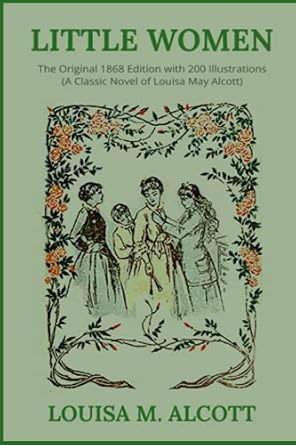
A couple weeks ago, I did a re-read of “Little Women.” It had been a couple of years since I picked it up and I was in the mood for some Alcott. Oh, and the March family. I’ve been deeply attached to the story since I was about fourteen. Jo March was the heroine after my own heart. There was one character though, I could never warm to. That was Amy March. I really couldn’t stand her. She burned Jo’s manuscript and got that trip to Europe, and she was just so snobby and selfish. Right? I mean, that’s how she’s portrayed in most adaptations. Jo has to toil and suffer while Amy gets everything handed to her on a silver platter. During this re-read I decided to pay attention to the youngest March sister and see if I was justified in my dislike of her.
“It’s nice to have accomplishments and be elegant, but not to show off or get perked up,” said Amy thoughtfully.
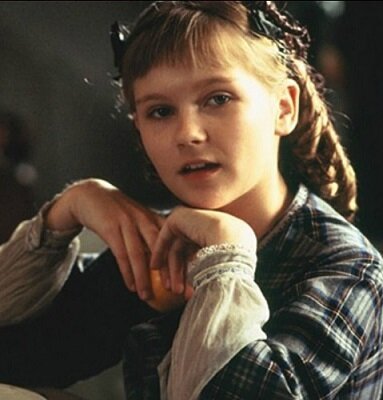
When the story opens, Amy is a kid. She’s twelve and the baby of the family. Mr. March is serving as a chaplain at war and Marmee works outside the home. Older sisters Meg is a governess, Jo is a companion, and Beth is the homemaker. Amy goes to school and deals with much of what most kids deal with. She struggles with her lessons, she is teased for being poor, she tries to sneak pickled limes in to eat them. Amy is on the receiving end of her teacher, Mr. Davis’s brutality when he discovers she has limes and raps her hand. She is self-conscious about her nose. She has to wear everyone’s hand-me-downs. She is determined to be a proper lady, she is artistic, and she tries to improve her vocabulary. Amy takes parts in her sisters’ theatricals, though doesn’t want to go to the extremes that Jo goes to, and avoids bruising herself.
If anybody had asked Amy what the greatest trial of her life was, she would have answered at once, ‘My nose.’
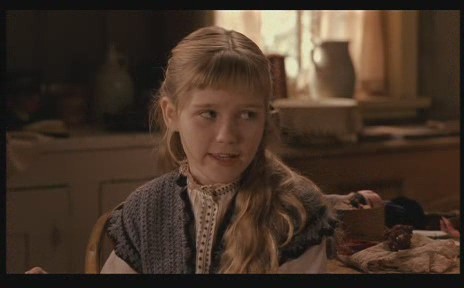
Amy and Jo often disagree with one another. One evening, when Jo and Meg plans to go out to the theater with their new friend Laurie, Amy is determined to join them. She and Jo go round and round, but Amy is bluntly told she isn’t wanted and it would be an intrusion for her to be there (my words, not the actual dialogue). While Jo is away, Amy burns a manuscript her sister has been working on. A fight ensues and though Amy tries to make up for what she did, Jo won’t forgive her. She tries once more to spend time with Jo, when her sister and Laurie are skating at the local pond, and nearly drowns as she crashes through the ice. Her live is saved and she and Jo reconcile. Jo forgives the girl and though Amy knew she was doing wrong when she destroyed the manuscript, maybe it’s time we as readers (myself included) forgive her too.
Amy opened her eyes, and held out her arms, with a smile that went straight to Jo’s heart. Neither said a word, but they hugged one another close, in spite of the blankets, and everything was forgiven and forgotten in one hearty kiss.
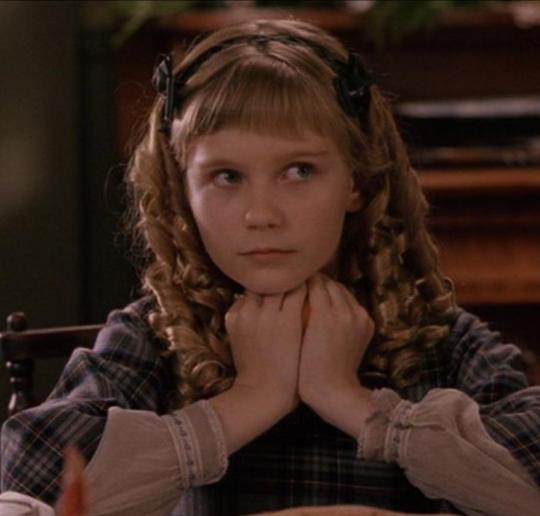
When Beth falls ill with scarlet fever, Amy is determined to stay at home with her family, risking her own health and wellbeing. Laurie manages to convince her to go to Aunt March’s, where uncertain of what the future may bring, she makes a will of her own in case she dies. Aunt March takes a liking to Amy and from then on, she is the older woman’s companion. Once Beth is well, Amy is allowed to come home, in time for her father to return home from the war and to see her older sister Meg engaged to John Brooke.
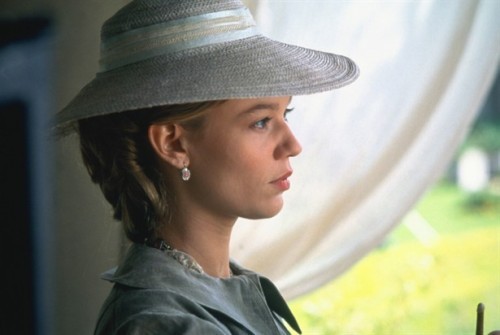
The next time we see Amy, it is three years later and she has grown into the proper young lady she always aspired to be. She dresses well, pays calls, dabbles in various forms of artwork, donates her time and energy to charity booths. Somehow, we as readers belittle this, when this was common way of life for ladies in the 19th century. Consider Marian Brooke, of The Gilded Age TV show, who embraces her own femininity and lives and thrives in New York society. Amy March is doing the same thing – while Jo breaks many of the societal rules, Amy wants to be part of that world. This is best demonstrated in Part Two, when Amy and Jo pay calls at various friends’ and relatives’ homes. Amy does her utmost to help Jo, but Jo (and don’t get me wrong, I love my girl Jo) is downright rude, improper, immature, and sloppy. Amy, on the other hand, is well-mannered, her appearance is neat, she is respectful, and she shows an interest in her hosts. This leaves an impression on Aunt Carol, who is planning a trip to Europe. She originally planned to invite Jo, but the visit shows her Amy would be a better candidate to take to Europe.
“You can go through the world with your elbows out and your nose in the air, and call it independence, if you like. That’s not my way.”
You laugh at me when I say I want to be a lady, but I mean a true gentle-woman in mind and manners, and I try to do it as far as I know how.
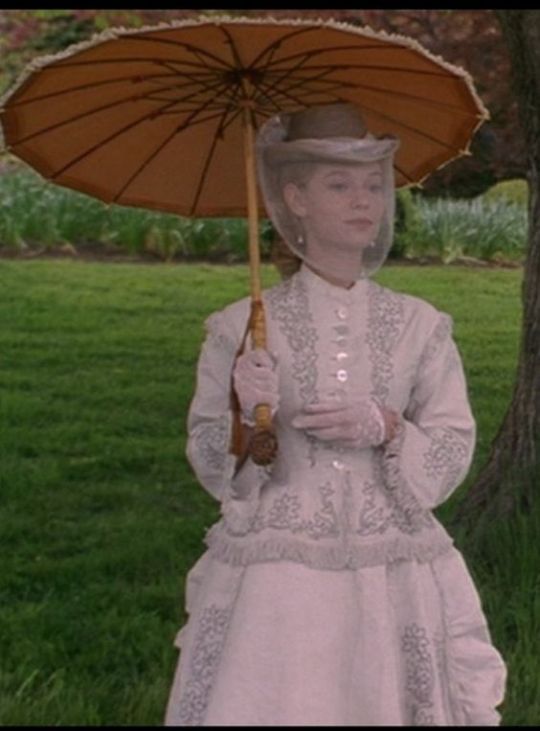
So, Amy didn’t steal Jo’s trip to Europe. She was true to herself and a wealthy relative rewarded her for it. She accompanies Aunt Carol and her family on their tour of Europe. This was another common practice in the 19th century. Family or friends would take a young lady along, to see the sights and with any luck, make a match there (think “The Portrait of a Lady,” by Henry James). Amy enjoys herself there, meeting new people, wearing the fashions of the time, learning about art and the countries she visits. The original plan of her life is that she becomes a successful, famous artist. In that way, she’s equally ambitious to Jo. However, while in Europe, she comes to accept her own limitations. Amy understands she has talent, but she doesn’t have genius. At least not compared to the greats or her contemporaries. She comes to terms with this; she will always love art and be artistic, but she must be practical now.
Very few occupations were open to women of that era, especially in the social circles Amy moved in. Teaching or being a governess would have been acceptable – many ladies of genteel and respectable families worked as governesses. Meg worked as a governess. But the pay wasn’t great and it would be a step down for a socially conscious young woman. The only way to secure her future was to marry well. By today’s standards, and many readers of “Little Women” it’s considered mercenary for Amy to think of marrying for money. However, again, think of The Gilded Age show, where some of the characters did or do want to marry for financial security – Agnes van Rhijn and her son Oscar van Rhijn.
Amy herself states: “I may be mercenary, but I hate poverty, and don’t mean to bear it a minute longer than I can help. One of us must marry well. Meg didn’t, Jo won’t, Beth can’t yet, so I shall, and make everything okay all round.”
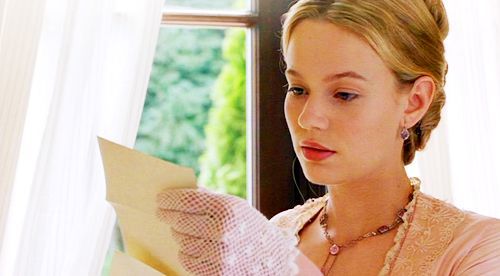
If Amy marries say Fred Vaugn, one of her suitors, she intends to help her family and those around her. It isn’t a bad plan…but it isn’t the right plan for her. After spending some time with Laurie, who she met up with in Europe, she understands she can’t marry just for money. Marmee and Father didn’t raise her that way and it wouldn’t be enough for her. Love, respect, admiration, and friendship must be part of the equation. The more time she spends with Laurie, she slowly falls in love with him. However, Amy isn’t pleased with Laurie’s behavior as of late. If she had really wanted to marry for money, she could have ignored his vices and set her cap at him. He once loved Jo and after nursing a broken heart, he meanders around Europe spending his grandfather’s money, wasting time, and not living up to his full potential. It is Amy who inspires him to become the best version of himself…and it is Amy he truly falls in love with. According to the book, Amy didn’t steal Laurie from Jo, because he never truly belonged to her.
“I’m not afraid of storms, for I’m learning how to sail my ship.”
Amy and Laurie both find their way, they marry, and after the tragedy of losing Beth, they return home. They find their happy ending together.
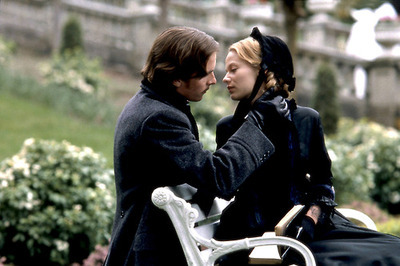
So was Amy selfish, shallow, prissy, or evil? Nope. No more than the rest of us. She was a young woman who found her place in the world. Her definition of happiness was different than Jo’s, but it doesn’t make her any less of a heroine.
What do you think? Do you like Amy March?
69 notes
·
View notes
Text
Ranking Portrayals of Amy x Laurie from Worst to Best
History- The best way to describe the couple is by alluding to another real-life story. David Bowie shared that when he met Iman, she was not at all interested in him, and if wanted to prove to her that he was serious, he had to work hard to win her; in his own words he described winning her as “it was as if she was a top a medieval tower, and in the process of reaching her, I became a better man, and never looked back.” This vibe is very much what makes Amy and Laurie a great couple, he the dreamer and emotional one, while she is the grounded and logical one. They balance each other out, and because they had known each other for so long, their love comes naturally and at ease that it makes sense they could love each other. They have known each other since they were young, and after much growth on their own characters, they find that they are meant to be.
2019- This is just bottom of the barrel when it comes to showing this couple. It’s funny, and while I am glad that people started to like Amy and the couple more because of this film, but let me tell you, they are not the best version. One issue that is had here is Amy’s character is so displaced. From the moment she meets Laurie, she is practically obsessed with him, plastering her foot so he may “remember what pretty feet I have” and running after him in a carriage screaming for him, when it is incredibly undignified for her to do. Amy plastered her foot because she wanted to try and explore other means of creating art, and it’s Laurie who sees her in Paris, chasing after her. This version really plays up the myth of Laurie “settling for Amy”, as he seems to not be that interested in her until she confesses her own feelings, and once again, Amy making a choice with the hope that Laurie is going to be waiting for her. I just didn’t see Laurie loving Amy as much as she loved him, and I didn’t find there to be much chemistry between the two actors as much as everyone said, not when he is so distant from her until the last moment.
1949- The problem with this film is that there is so little of them. I know that this was the same complaint of Meg and John in the 2019 film, so why aren’t I applying the same criteria to this listing? Because I would rather see so few of their interactions than see it played out incorrectly. The only real interaction they seem to have is during the party scene when Jo and Laurie get Amy and Beth food as they sit on the stairs. The only other hint of a relationship happening before the return from Europe is when Amy asks Jo, before leaving for Europe, if Jo would be alright if Laurie fell in love with another girl, hinting possibly something had happened while Jo went to New York. I think it’s a shame that we don’t see much of them, given that I think Elizabeth Taylor and Peter Lawford could have made a nice Amy x Laurie.
2018- This too suffers not having enough scenes with them, especially as adults, but I give this a pass given that the film follows Jo’s perspective more than the others. What I do like about this version is that we do see some sweet moments between them, both as children and adults, that it makes sense just how it could be possible that they fall for each other. Laurie was always so good to Amy as a child, so you understand why she, as a kid, would have a crush on him, which oddly bumps this over the 49’ film, but it allows me a better understanding why and how they fell in love. They are both creatives who are interested in what the other is doing, while Jo is focused on her own work, not necessarily caring what anyone else’s dream is, just what she thinks they ought to be.
1933- This one fare better than the 49’ film by showing more interactions between the characters that you can understand better here how they end up together. Notably, they share an interaction when Beth gets scarlet fever, and Laurie promises to take Amy out for a ride every day while at Aunt March’s, and then scene with Amy and Laurie in Europe after finding out Beth has died. I love their reunion in Europe, because it shows not only how Amy had matured from the start of the film, but also the incredibly tender look Laurie gives Amy as he comforts her, it’s so sweet and you can see the beginning of a romance blossoming between them.
1970- This is another one that really stayed true to text, and having that helps to get the audience on board with the pair. The first time they interact is when Laurie saves her from drowning, jumping in himself to save her and Amy clearly has a crush on him after this. When Laurie promises to take her out for a ride while she is at Aunt March’s there is a pretty adorable interaction where they make plans. At Meg’s wedding they already have hits of acting like a couple, when he spoke in French, “to you I surrender”, then taking her in his arms, and when dancing begins, Amy is the first person he goes to. Where they shine is when they meet again in Europe. This is incredibly faithful to the novel where Amy lays it out for him and Laurie chastises her for marrying only for money. I love the way Amy defends Laurie and is proud of him going away to London to do better things for himself. When he goes to comfort Amy, he promises to not go back to Paris as long as Amy wants him and promises to take care of her. This is the only version that shows them alone after being married, and the casual intimacy they share with each other is just precious. For book faithful, you are best to go with this one.
2017- This one was a surprise how much I liked it. I liked seeing scenes of them together, especially prior their trip in Europe, because it shows how much their relationship grows, especially the scene at Aunt March where they both talk about their faults and wishing to improve themselves. It shows their vulnerable side, which through the series, we hadn’t seen either of them show to anyone else. While we don’t get much of Amy reprimanding Laurie for his behavior, it still has them being honest with one another about their faults, encouraging the other to pursue their passions, and Kathryn Newton and Jonah Hauer-King have a wonderful chemistry together that I would very happily see them in another film where they are a couple. It’s in the looks they give each other, the simple gestures that help to show that, whether they know it or not, they are falling in love with each other, until it’s unavoidable. The scene where they admit their love, at the bank is an intimate moment, and has dialogue quite true to the book, as Laurie asks if Amy thinks they might be on the same journey that could last forever.
1978- Something I always like to see between Amy and Laurie is moments shared before going to Europe, and there is a great conversation between them about their desire to be skilled in art and music, and encouraging each other to chase their dreams. They are always so honest with each other, even if it is blunt and hurtful, in the end, they know they can take it. The scenes in Europe are so true to text that it made me so happy. I feel like so many versions do not play that out, and watching how their love went from being friends to how Laurie could realize that he never loved Jo, that his heroine of his opera stopped looking like Jo and was more like Amy, was adorable, you can really hear the sincerity in his voice when he says this. You can see how good of an influence Amy has on him, particularly when they see Jo after getting married, and she convinces him to speak to Jo about being married. I put this one higher than the 70’ miniseries, mainly because I felt the actors had a better chemistry together than the earlier version, and if you want something that overall shows the essence of Amy x Laurie, this one does the trick.
1994- I wasn’t expecting this one to be as high as it is, but I think the reason why is all the nuances that are in this version rather than just what we see. I always love seeing Amy and Laurie interactions before Europe, as it’s meant to be a softer version of friends to lovers, so to have a scene where Laurie and Amy are in the carriage, him comforting her as she worries over Beth and staying with Aunt March, and the precious moment where he promises to kisses her before she dies, and to have it come back later on was wonderful. His touching her nose, hinting at her little habit of the clothes pin on her nose, is the cutest little signs of affection between them, a sort of them thing. After their rather frank conversation of how they both are acting against their nature is very well done, showing that they can be honest with each other, and when Laurie goes to London to improve his behavior, it inspires Amy to do the same. What gets me hardest is when he receives the letter from Jo about Beth’s death and Aunt March in confinement, he doesn’t even finish the letter, just drops everything to rush to Amy’s side, proving that she was first on his mind, not Jo, and that he loved Amy more than her. This is the version to really get into Amy and Laurie, as it encapsulates everything that makes their relationship great.
#little women#amy march#theodore laurence#amy x laurie#amy and laurie#little women 1933#little women 1949#little women 1970#little women 1978#little women 1994#text post
82 notes
·
View notes
Text
I think a lot of people miss how funny Little Women the novel is, so I wanted to share a couple of my favorite things that I never hear talked about.
Jo is so uninterested in Laurie as a romantic prospect that she ships him with every single one of her sisters throughout the books. Initially she makes plans for Teddy and Meg to eventually end up married so that Meg can have a rich husband to take care of her. Of course, this plan fails when Meg gets engaged to John Brooke.
Later, Jo sees Beth staring out the window wistfully and sighing when Laurie passes below. Beth is jealous of his good health because she knows she's dying, but Jo instead mistakes this for romantic interest. There's nothing romantic between the two outside of Jo's head.
Finally, Jo reflects that Amy and Laurie would be a perfect match, but given how her previous attempts at meddling have gone, she isn't going to try and do anything to make it happen. This time, it happens without her help.
It's very much the vibes of someone knowing a guy who they consider to be a really good dude but they have no personal interest in them, so instead they try to set him up with all of their friends. Laurie was never in the friend zone. He was always strictly in the brother-in-law zone.
As for Laurie, the book makes it clear that his affections are changing targets far before Laurie himself is willing to admit it, in an extremely funny way. Laurie is in Europe feeling sorry for himself after Jo has turned him down. At the same time, he's been getting closer to Amy.
But Laurie has convinced himself that his first love should be his last and decides to write an opera with Jo as his heroine. Except that Jo is not an easy fit for an opera heroine, and whenever he tries to call up romantic feelings about her, he finds himself remembering Jo at her least romantic doing very prosaic things like beating a carpet while in the old practical clothes one wears for cleaning.
So, Laurie decides to give up on making Jo his heroine and instead puts in a graceful lady with blonde hair and blue ribbons. Which, of course, doesn't sound at all like someone else we might know, right, Laurie? Definitely an Original Character, Do Not Steal. The text is very much aware of this and lampshades it.
82 notes
·
View notes
Text
Louisa May Alcott did almost too good a job of portraying Jo and Amy March as perfect foils to each other. Maybe it's because of her own blend of love and envy toward her sister May. Or maybe it's just because society makes every woman or girl feel inferior, whether for "failing" to conform to gender expectations or for conforming too much to them. But with Jo and Amy, it seems almost impossible to like them both equally, or to prefer one without being slightly annoyed by the other. If you relate to one of them, then the other seems almost designed to trigger your insecurities.
Fans of each sister feel as if the other is privileged by the narrative and their own personal favorite is treated as inferior.
Jo fans feel as if Amy is held up as a model of proper manners and social graces, and is rewarded for it (namely by going to Europe and by being the best suited to Laurie), while Jo is shamed for being unladylike, not just by some of the other characters but to an extent by the self-deprecating Alcott as author.
Yet Amy fans feel as if Jo is held up as the character the reader is supposed to relate to and admire for her non-conformity, while Amy's refined, feminine tastes are unfairly treated as vain and silly, and they feel the sting of Amy's lack of professional success as an artist while Jo does succeed as an author.
I've seen this again and again online and in books, among members of both Team Jo and Team Amy.
833 notes
·
View notes
Text
I love you hated female characters. I love you female characters who are flawed. I love you female characters who mess up and try to do the right thing after. I love you female characters who get the undeserved vitriol from fans. I love you female characters who fans completely condemn because of one mistake they made. I love you female characters who fans completely condemn because of one mistake they made as a child. I love you female characters who people blame for ripping apart their ships instead of the larger forces that be. I love you female characters who get all the hate as the male characters who do worse in canon get absolutely none. I love you female characters who get hated on because they told a man “no.”
#feminism#books#female characters#literature#theatre#amy march#if you can think of any let me know#sansa stark#briony tallis#cosette fauchelevent
13K notes
·
View notes
Text
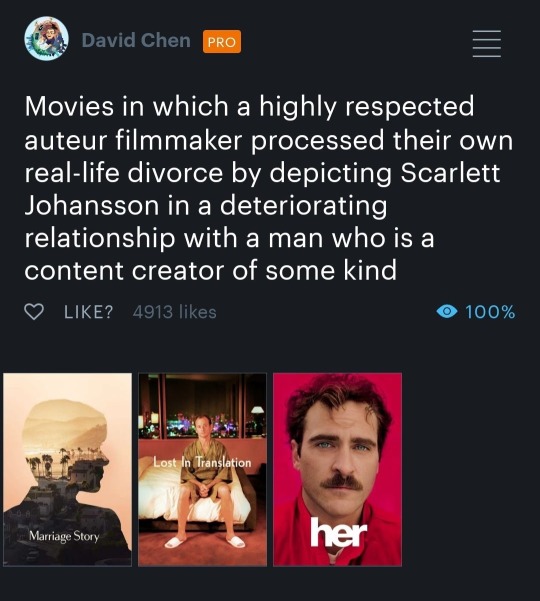
641 notes
·
View notes
